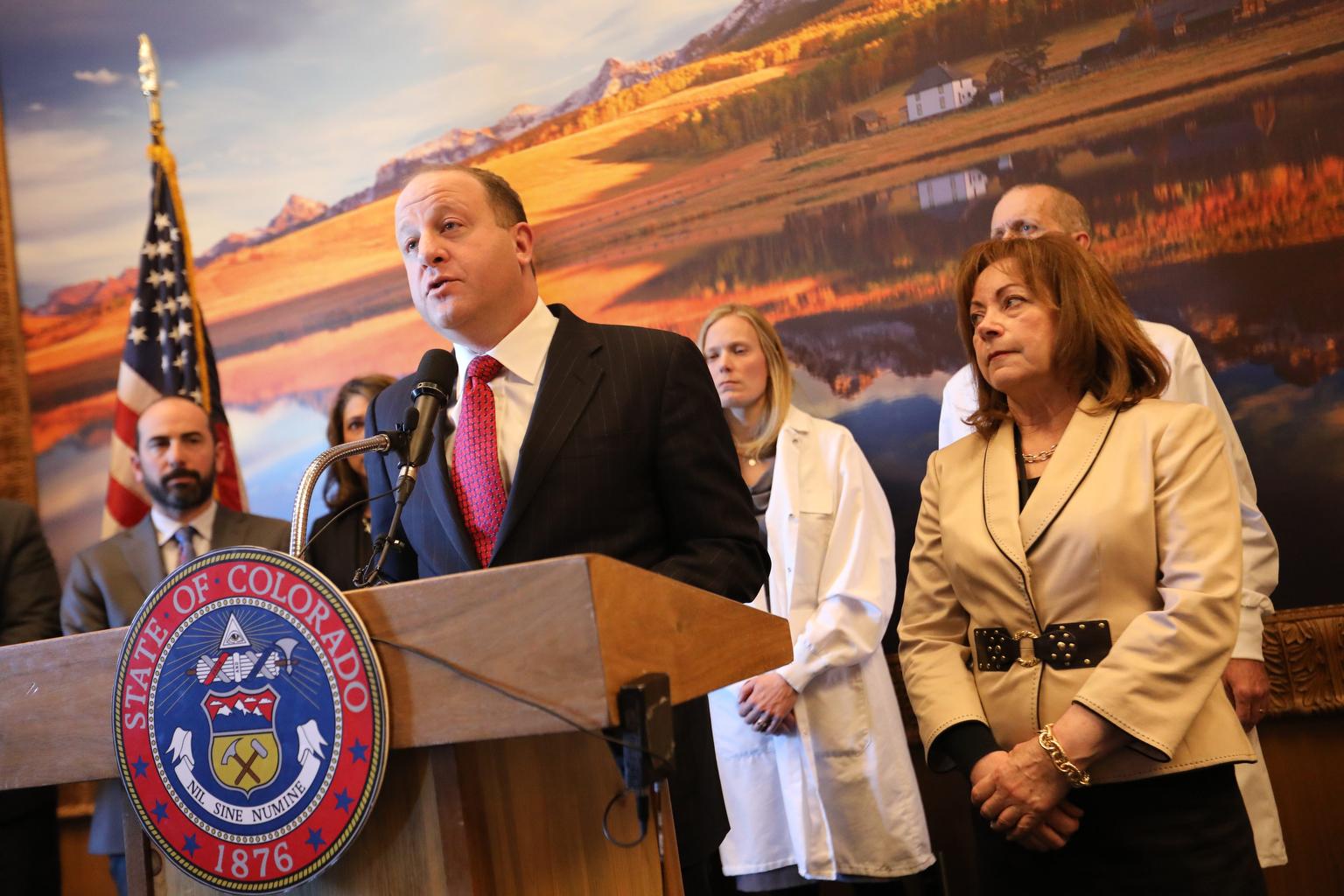
Updated June 22 @ 7:26 a.m.
On Saturday, Gov. Jared Polis signed executive order 109, which again extended Colorado's state of emergency for another 30 days from June 19. Our original story continues below.
--
Colorado’s state of emergency for COVID-19 is set to expire on Saturday — but don’t expect anything to change.
Gov. Jared Polis has extended the order three times so far, each for 30 days. The state’s disaster statutes require that “no state of disaster emergency may continue for longer than thirty days unless renewed by the governor.” And he’ll do it again, as the threat of the coronavirus has not gone away, despite a drop in the number of cases and hospitalizations in Colorado.
The first COVID-19 disaster declaration came on March 11, and since then the governor has issued more than 100 executive orders related to the coronavirus. (That’s double the number of executive orders former Gov. John Hickenlooper issued in 2012 as the state battled numerous wildfires.)
The scope and breadth of Polis’ orders provide a window into just how much the coronavirus has altered life in Colorado. The orders have addressed everything from evictions and housing assistance to relaxed healthcare worker standards to requiring masks for certain workers to canceling in-person school instruction to suspending marriage license requirements.
“It is really different than the usual disaster, which is something like a fire or a flood or a large storm, it’s everywhere all the time,” said Jacki Cooper Melmed, chief legal counsel for Polis.
She also served the same role in Hickenlooper’s second term.
“And because of that, it affects so many different aspects of our lives,” Melmed said.
The state Department of Public Health and Environment has issued their own slew of orders, including one Friday allowing for some indoor and outdoor youth camping programs with restricted sizes, allowing bars to re-open with restrictions, some slight expansion of capacity in restaurants and allowing colleges and universities to host in-person classes at 50 percent capacity.
The gradual expansion is accompanied by growing concern about the possibility of a coronavirus resurgence in Colorado. On Friday, the state reported that the percentage of test cases coming back positive, averaged over the previous three days, had risen to 3.31 percent on Thursday. That's the fourth day in a row that the 3-day positivity rate has grown.
Polis has used his public appearances and Twitter account to regularly emphasize that the crisis is far from over and that, by wearing masks, maintaining social distance and washing hands regularly, Coloradans can still control whether the economy continues to re-open, or gets locked down again.
The constant state of emergency, for all of Colorado, is unprecedented in modern times. But extended disaster declarations are not. A disaster declaration remained in effect for the Fourmile Fire in Boulder, that started in 2010, for almost two years, spanning two different gubernatorial administrations.
In the past, extended disaster declarations were almost solely about money. By declaring a disaster, and consistently renewing the declaration, the state opened up various funding streams, particularly from the federal government.
But the coronavirus is different: the state is in the midst of the first of what could be multiple waves of the disease. Renewing the disaster declaration allows Polis all the emergency powers allowed under the statute, including activation of the National Guard.
There is a potential check on this power.
“The general assembly, by joint resolution, may terminate a state of disaster emergency at any time. Thereupon, the governor shall issue an executive order or proclamation ending the state of disaster emergency,” according to the statute.
But that’s not likely to happen, because there is no end in sight for this state of emergency.









